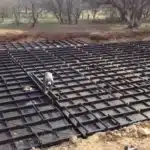[ad_1]
A weekly choice of opinions and analyses from the Arab media around the globe.
The brand new elite in Egypt
Al-Masry Al-Youm, Egypt, August 14
Till the early Nineteen Nineties, the higher echelon of Egyptian society largely emerged from the general public college system. Ministers, medical doctors, engineers, diplomats, and numerous different professionals started their journeys in village and small-town colleges earlier than transferring on to public universities.
Right this moment, nonetheless, the equation has shifted dramatically. Though exact research and correct statistics stay scarce, it’s clear that graduates of personal establishments – particularly worldwide colleges – have risen to type Egypt’s new elite. The mere point out of such a faculty on a résumé can tip the steadiness in an adolescent’s favor, offering them with a decisive edge over their friends.
Many roles now demand proficiency in a international language, a requirement that leaves the vast majority of public college graduates – even these with superior levels from public universities – shut out from these alternatives. English, specifically, has turn out to be the gatekeeper of alternative.
If one’s English displays the colloquial model taught in authorities colleges, profession prospects are stunted, regardless of the power of 1’s college credentials. Conversely, fluency in polished English opens doorways that stay closed to the bulk.
This phenomenon isn’t distinctive to Egypt. Throughout the globe, non-public colleges have entrenched themselves in schooling programs. Roughly 17% of main college college students worldwide are enrolled in non-public colleges, a determine that climbs to 26% on the secondary degree.

An illustrative picture of personal college college students. (credit score: SHUTTERSTOCK)
But in Britain, the odds inform a unique story. As Alastair Campbell, former communications director beneath prime minister Tony Blair, just lately famous, 93% of Britons attend state colleges. Nonetheless, the 7% who obtain non-public education disproportionately dominate positions of energy throughout authorities, the judiciary, the media, finance, and past.
Regardless that most ministers within the present Labour authorities hail from state colleges, this doesn’t routinely sign that Britain has achieved true meritocracy, or that social mobility ensures that anybody with expertise, dedication, and resilience can climb to the highest.
Campbell argues that non-public schooling confers a permanent benefit, positioning its graduates to occupy senior authorities workplaces and declare the lion’s share of society’s wealthiest and most prestigious roles. The so-called 7% membership continues to wield huge political, cultural, and financial affect.
Workplaces, by extension, favor non-public college graduates. Whereas public college and college alumni attempt to adapt, they usually encounter an expert surroundings that feels alien, marked by refined cues of exclusion. Accents, costume, hobbies, eating habits, and even conversational types set them aside, reinforcing a way of division between the world they arrive from and the world they now inhabit.
Is that this not exactly what we see in Egypt in the present day? More and more, workplaces function in English, even when serving a client base that’s overwhelmingly Arabic-speaking.
Sectors starting from actual property to telecommunications, banking, and even hospitality package deal themselves as extensions of worldwide companies, although their foundations stay deeply Egyptian. The cultural and social norms of those environments diverge sharply from these of the communities surrounding them.
If Egypt is to realize real social mobility, the graduates of its public colleges – these scattered throughout its numerous cities and villages – should be granted actual entry to elite positions. It ought to by no means be sufficient for somebody to easily wave the credential of a personal or international college as a passport to privilege. Fairness calls for extra. The trail to true mobility begins when alternative is earned, not by means of background or accent however by means of advantage, dedication, and skill.
– Abdullah Abdul Salam
The place did Iran’s Arab plenty disappear to?
Asharq al-Awsat, London, August 15
A grave-like silence hangs over the Arab public, untouched by the seismic occasions shaking the area. No demonstrations, no protests, no sit-ins could be discovered throughout Arab capitals – an unprecedented absence, maybe for the primary time in seven a long time or extra.
Iran, in the meantime, has endured devastating blows. Its army setbacks and the injury to its nuclear infrastructure are immense, representing the lack of billions of {dollars} and numerous lives, and years of labor. Past its ballistic and nuclear ambitions, Tehran has additionally seen the erosion of its huge community of affect – a well-liked motion painstakingly cultivated throughout the Arab world from Iraq toMorocco.
When theLebanese authorities made the audacious choice to confiscate Hezbollah’s weapons, the response amounted to little various dozen bikes roaming the streets of Beirut in protest. So the place are the tens of millions as soon as summoned by the occasion’s chief or by Tehran itself?
The collapse of Iranian affect throughout the Arab sphere echoes the unraveling of Nasserism after the crushing defeat of 1967. Stripped of its skill to ignite the road, Nasser’s regime fell again on choreographed shows – urgent Socialist Occasion loyalists and labor unions into filling venues – after spontaneous, fervent crowds that had as soon as surged into public squares in response to the magnetic pull of radio broadcasts dwindled away.
What remained was a collective sense of shock and despair in a area that had lengthy pinned its hopes on the liberation of Palestine.
Iran, too, as soon as commanded an analogous well-liked attain. It defied makes an attempt to ban its concepts, molding generations of Arabs by means of ideology and outreach. Tehran embraced Sunni extremists – together with al-Qaeda figures – regardless of their anti-Shi’ite dogma, and threw assist behind Sunni opposition actions difficult their regimes.
It solid natural ties with the Muslim Brotherhood, held semiannual conferences for Arab nationalists and Communists, and invested closely in cultivating intellectuals and artists. Poems, books, and speeches extolling the virtues of the imam’s regime poured forth, whereas Tehran’s attain prolonged throughout Shi’ite, Sunni, and Christian circles, drawing in voices from the Gulf, Egypt, the Levant, North Africa, Sudan, Yemen, and Western Arab diasporas. Many Arab media retailers echoed Khamenei’s messaging.
One way or the other, Tehran managed to reconcile contradictions that appeared irreconcilable. In Tripoli, a metropolis marked by historic stress with the Shi’ites of Beirut, Sunni factions remained loyal to Tehran because the Eighties. In Jordan, components of the Muslim Brotherhood pledged allegiance to Tehran’s management. Publications appeared throughout the area defending its insurance policies, whereas conferences within the Gulf celebrated sectarian “rapprochement” beneath historic banners.
But none of this was undertaken within the title of God or to genuinely heal sectarian rifts; it was all the time a part of a calculated political undertaking aimed toward domination. For many years, Tehran orchestrated each elite circles and avenue actions throughout Arab cities, mobilizing protests not solely towards regimes however towards movies, novels, and peace negotiations.
However because the wars following the October 7, 2023 assaults, that once-unshakable dynamism has evaporated. The explanations are clear: Individuals flip away from the defeated, and the companies that fueled these actions have seen their strains of communication severed and their sources dry up. The Arab avenue venerates victors and abandons them once they fall, solely to embrace the following rising pressure.
Iran’s followers have been shocked by repeated defeats, simply as Nasser’s admirers had been traumatized by the failures of the Sixties. Right this moment, the central problem is whether or not Tehran can retain even its Shi’ite base, which has borne the best burden and stays in shock.
In the end, Lebanon’s Shi’ites will confront a painful realization: They’re victims of Hezbollah and Iran, not beneficiaries. For 4 a long time, they’ve carried the load of this alliance, struggling financial collapse, the destruction of their neighborhoods, and punitive sanctions focusing on their livelihoods and remittances from Africa, Latin America, and North America. What they’ve endured isn’t the empowerment of a neighborhood, however the crushing value of serving as Tehran’s entrance line. – Abdulrahman Al-Rashed
Bombing civilians with no clear technique
Al-Ittihad, UAE, August 15
On August 8, whereas commenting on the deaths of civilians in Gaza brought on by Israeli airstrikes, US Ambassador to Israel Mike Huckabee sought to justify the assaults by invoking the Allied firebombing of Dresden in February 1945. His remarks, provocative as they’re, increase a broader challenge price inspecting: the lengthy and deeply contested historical past of aerial bombardment towards civilians.
Using air energy towards noncombatants dates again to World Warfare I, when German Zeppelins dropped bombs on British cities. Although casualties had been comparatively restricted in comparison with the slaughter inflicted by artillery on the European entrance strains, the psychological affect was immense, signaling a brand new period of warfare.
Within the interwar interval, air raids had been deployed in colonial campaigns throughout the Center East and North Africa. In Europe, essentially the most infamous case was the German bombing of Guernica in 1937 through the Spanish Civil Warfare. Although only some hundred individuals had been killed, the assault focused a market day and have become immortalized by means of Pablo Picasso’s iconic mural, which conveyed the horror of contemporary mechanized destruction.
The Sino-Japanese Warfare which erupted that very same 12 months marked an much more brutal enlargement of this tactic. Japanese forces unleashed devastating air raids on Chinese language cities, killing tens of hundreds in Chongqing and contributing to mass civilian deaths in Nanjing.
World Warfare II cemented the function of air energy in civilian carnage, with estimates of 1 to at least one and a half million individuals killed throughout a number of fronts. The German bombing of Warsaw in 1939, the flattening of Rotterdam, and the Blitz towards Britain in 1940 foreshadowed the sheer scale of devastation but to come back.
Because the warfare intensified, the Allies responded with large bombing campaigns throughout Germany, creating “firestorms” that consumed cities reminiscent of Hamburg, Kassel, and Dresden, whereas others – Cologne, Berlin, Hanover, Stuttgart, and Magdeburg – had been left in ruins.
Within the Pacific theater, American raids on Japan culminated within the March 1945 firebombing of Tokyo, which incinerated greater than 100,000 civilians, and later within the atomic annihilation of Hiroshima and Nagasaki.
Using air energy towards civilians didn’t finish with World Warfare II. In Southeast Asia through the Sixties and Seventies, tons of of hundreds perished in bombing campaigns, and the area suffered the ecological and human toll of Agent Orange, a chemical weapon aimed toward destroying crops and forests.
In later a long time, wars within the Center East and South Asia noticed comparatively fewer deaths from airstrikes, but the protracted bombing campaigns in Gaza have triggered a few of the fiercest debates in latest reminiscence.
The ubiquity of uncooked, every day video footage – photographs of households digging by means of rubble, youngsters starved and displaced, and whole neighborhoods flattened – has amplified world accusations that Israel is committing warfare crimes, even genocide.
This ethical quandary isn’t new. On the finish of World Warfare II, the destruction of Dresden was criticized by British officers, church leaders, and abnormal residents alike, although it was not categorized as a warfare crime, largely as a result of the revelation of Nazi atrocities overshadowed such debates.
Likewise, the ethical reckoning over Hiroshima and Nagasaki was muted by the widespread perception that the atomic bombs spared tens of millions of lives by forcing Japan’s give up and avoiding a floor invasion.
Right this moment, Gaza presents its personal ethical labyrinth. Whereas Hamas bears accountability for embedding its operations amongst civilians, Israel faces mounting criticism for what more and more seems to be a warfare with no clear exit technique. The grim lesson of historical past is that aerial bombardment of civilians invariably raises doubts about each morality and technique, doubts that reverberate lengthy after the bombs have fallen. – Geoffrey Kemp
Hezbollah’s weapons by no means meant to safeguard Lebanon
An-Nahar, Lebanon, August 15
The Islamic Republic says one factor and its reverse with regards to Lebanon. Earlier than Ali Larijani, secretary of the Supreme Nationwide Safety Council of Iran, arrived in Beirut, Iranian officers – together with Larijani himself – dismissed outright the Lebanese authorities’s stance on Hezbollah’s weapons. Iranian International Minister Abbas Araghchi even proclaimed that the Lebanese authorities would “fail” in any try to disarm the occasion.
But as Larijani’s go to approached, the rhetoric shifted. Instantly, Iranian officers had been talking of “Iran’s assist for the Lebanese individuals,” not merely for Hezbollah.
This alteration in tone seems to have been one of many circumstances set by the Lebanese aspect to grant Larijani conferences with President Joseph Aoun and Prime Minister Nawaf Salam, who insisted throughout a cupboard session on fixing a deadline – by 12 months’s finish – for dismantling Hezbollah’s arsenal. The president raised no objection, underscoring that the Lebanese authorities have however one choice: to undertake a definitive place on the unlawful weapons of a celebration that’s Lebanese in title solely.
The distinction between mounting a hostile marketing campaign towards the Lebanese authorities and claiming to “assist the Lebanese individuals” is stark.
Those that defend Hezbollah’s arms are, in reality, standing towards the Lebanese themselves, given the devastation these weapons – extensions of Iran’s arsenal – have inflicted on the nation, together with on its Shi’ite residents. Hezbollah’s weapons have by no means been meant to safeguard Lebanon; their objective has all the time been to rework it right into a state orbiting inside Tehran’s sphere of affect.
Larijani couldn’t preserve even a veneer of moderation. At a press convention following his assembly with Parliament Speaker Nabih Berri, he reverted to reiterating Iran’s opposition to any timetable for Hezbollah’s disarmament – in essence, resisting the dismantling of the Islamic Republic’s weapons stationed all through Lebanon.
He urged the Lebanese to “protect the resistance,” ignoring that the first explanation for Lebanon’s distress is exactly this so-called resistance, which has impoverished the south and dragged the whole nation into turning into little greater than a battleground for Iran’s messages to Israel, and beforehand for the exchanges between the Assad regimes in Syria and Israel.
There’s a actuality in Lebanon that Iranian officers like Larijani refuse to acknowledge: The “resistance” was by no means greater than an Iranian instrument, advancing Tehran’s agenda beneath the guise of Lebanese battle. Iran seized on the US-led warfare in Iraq in 2003 to push its expansionist undertaking additional throughout the area.
What, in spite of everything, explains the assassination of Rafik Hariri and his companions, and the lengthy chain of killings that adopted – together with the assassination of Lokman Slim – if not Iran’s dedication to dominate Lebanon and suffocate any effort to revive its nationwide life, particularly in Beirut?
Who can overlook Hezbollah’s paralyzing sit-in in downtown Beirut, or the bloody occasions of Might 7, 2008?
Neither is there any must revisit intimately the 2006 summer time warfare, which preceded Hezbollah’s incursion into Beirut and Mount Lebanon. That battle, with its devastating aftermath, uncovered the depth of collusion between Iran and Israel, culminating years later within the election of Michel Aoun as president in 2016 and, earlier than the shut of his time period, within the maritime border demarcation settlement with Israel that served Israeli pursuits.
Iran acts solely for its personal profit. Each Lebanese little one is aware of this.
Each Lebanese little one understands that the Islamic Republic has accomplished nothing however dismantle Lebanon and displace its individuals. Iran has no allies in Lebanon – solely instruments it wields within the hope of placing a grand discount with its “Nice Devil,” the US, to cement its regional dominance.
Larijani got here to Beirut after first stopping in Baghdad, the place he signed a safety pact with Iraq aimed toward salvaging what stays of Iran’s expansionist imaginative and prescient. At this second, the Islamic Republic seeks nothing greater than to show it nonetheless has leverage within the area, Lebanon included.
To that finish, Larijani falls again on drained, hole language that glorifies the “resistance” whereas intentionally ignoring the calamities it has unleashed, together with the “Gaza Help Warfare.”
That warfare devastated Lebanese villages, most of them Shi’ite, and drove their individuals into displacement. It successfully reimposed the Israeli occupation, and Hezbollah’s insistence on clinging to its weapons now stands because the surest assure of its indefinite continuation.
Larijani has no scarcity of rhetoric and “recommendation” for the Lebanese, however he gives no solutions to the plain questions: Why did Hezbollah open a entrance in southern Lebanon? Who will bear the price of the occasion’s crushing defeat? Who will rebuild the villages of the south? Who will return the displaced to their houses? Who will take away the Israeli occupation – an occupation Iran itself, by means of its proxy, has all however restored?
Lastly, the Iranian envoy, who claims to know the area properly, appears to have forgotten Iran’s personal most painful wound: the lack of Syria. Syria issues to Tehran because the indispensable hall to Lebanon, and thus to Hezbollah.
Till Iranian officers confront this new actuality – that their wars can not be waged by proxy militias in Arab lands however should be confronted inside Iran itself – they may proceed to repeat the identical hole script, even because the area round them strikes on. – Khairallah Khairallah
Translated by Asaf Zilberfarb/The Media Line. All assertions, opinions, details, and data introduced in these articles are the only real accountability of their respective authors and never essentially these of The Media Line, which assumes no accountability for his or her content material.
[ad_2]










